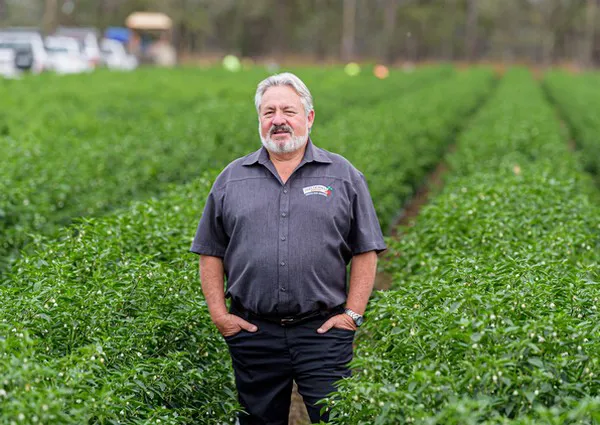With an increasing range of real-time sensors and monitoring used in vegetable production, several real-time sensing options will be piloted in a new project to investigate whether these digital tools might be able to both support agronomic decision making as well as guide and record improved environmental stewardship. AUSVEG EnviroVeg Coordinator Danielle Park reports.
AUSVEG and the EnviroVeg Program – along with several horticulture industry partners – are participating in a new project to raise the horticulture sector’s environmental performance.
Part of EnviroVeg’s role will be investigating the use of remote monitoring to support vegetable producers automate the collection of real-time data to support management decisions, as well as allow for digital reporting of environmental performance.
The challenges of record keeping and collecting evidence to support production decisions, as well as tracking environmental performance, has been evidenced over many years through the AUSVEG-facilitated EnviroVeg Program, which is a strategic levy investment under the Hort Innovation Vegetable Fund.
Funded through the Australian Government’s Landcare Smart Farming Partnerships program, the Digital remote monitoring to improve horticulture’s environmental performance (ST19024) project is managed by Hort Innovation.
Current technology developments already provide a range of sensors and tools that can continuously monitor key components of farm production and performance. This could be done through identifying inefficiencies, filling in the gaps and having more efficient operations with optimised use of inputs.
AustChilli is one of the pilot farms that will participate in the investigation and use of various digital monitoring methods. The operation’s Managing Director, David De Paoli, outlined why he chose to be part of the project and pilot the automated monitoring approach.
 AustChilli Managing Director David De Paoli
AustChilli Managing Director David De Paoli
“If you do not change, you will be roadkill as your competitor will run over you to get the market first,” David said. “We want to prevent run-off into the reef and potential contamination of waterways. The bonus is the higher productivity, better quality, lower cost of production and greater reliability of supply.”
When it comes to managing crops with more frequency of extreme weather events experienced globally, David said that his staff wanted to be able to tap into weather patterns and models to be able to predict and reduce its effect on production by being proactive – and not reactive.
“Automation can improve crop efficiency and reduce leachate by reducing and adjusting inputs at critical times,” he said.
For more information:
Zarmeen Hassan
AUSVEG
Tel.: +61 03 9882 0277
Email: zarmeen.hassan@ausveg.com.au
